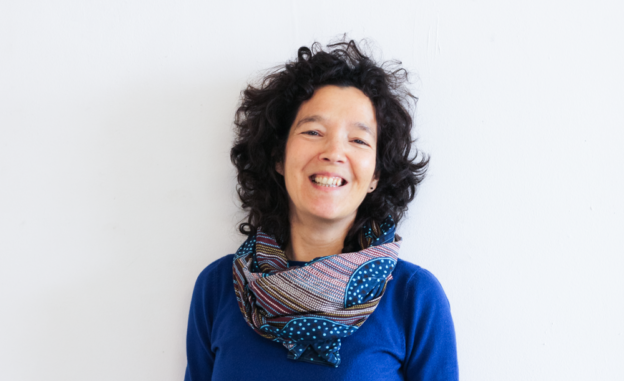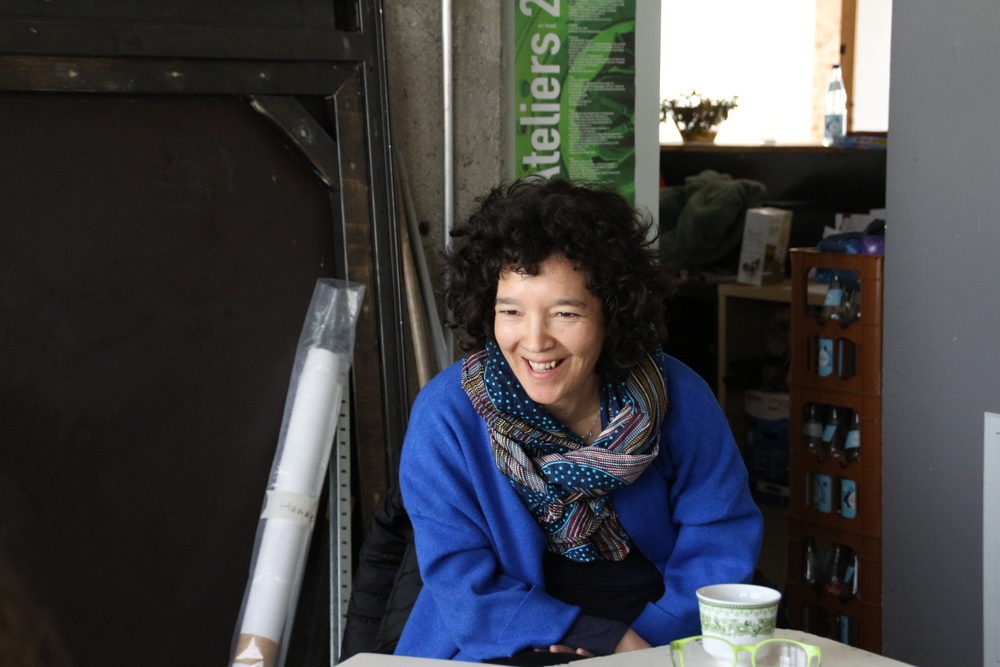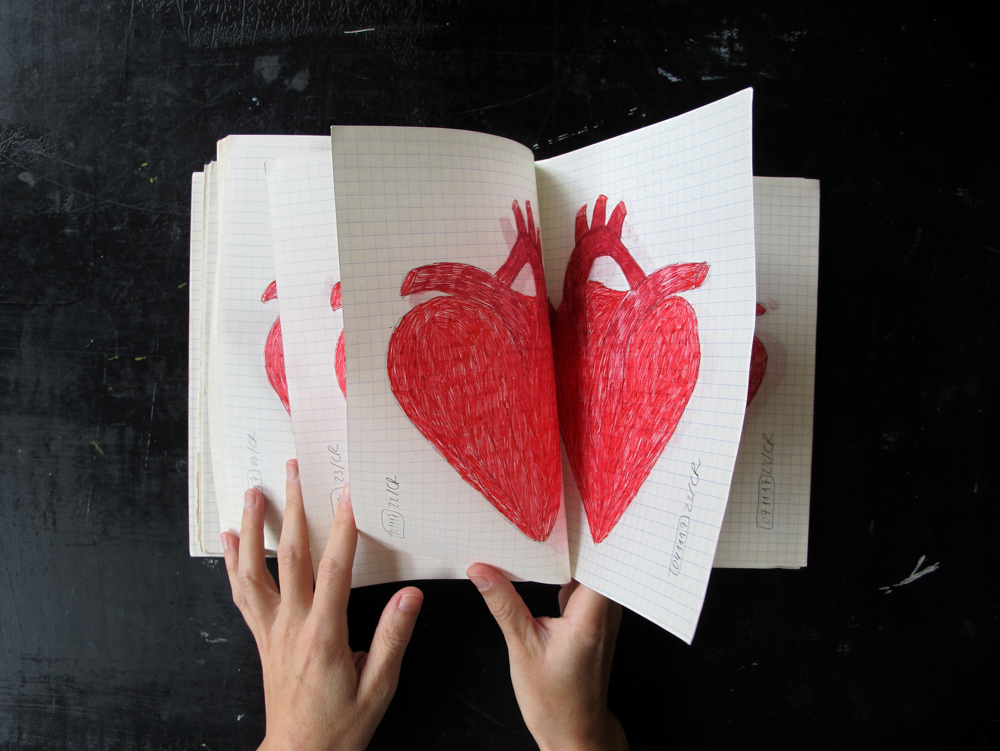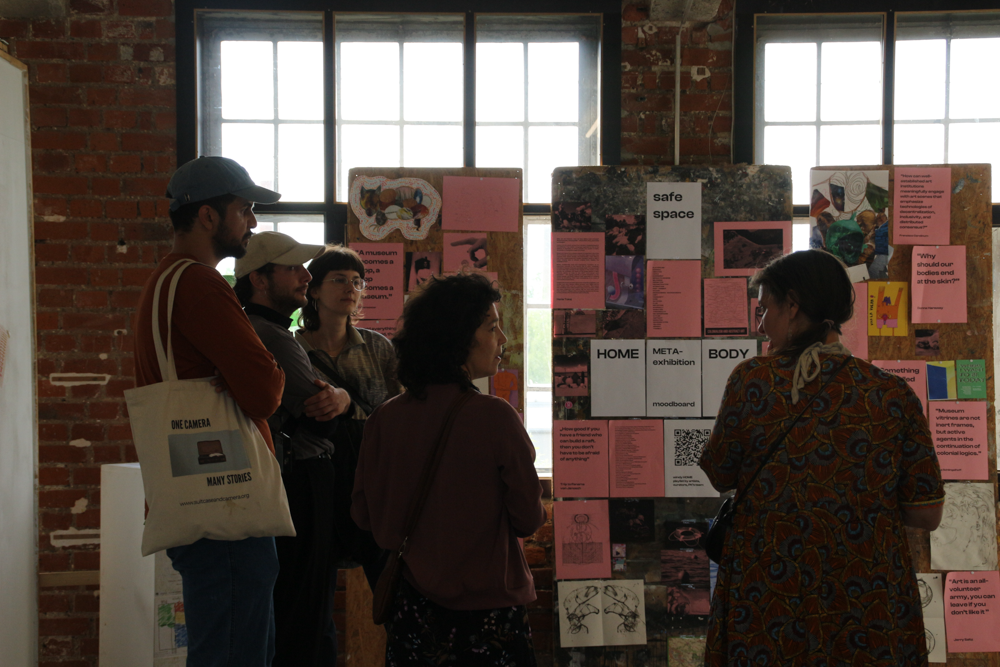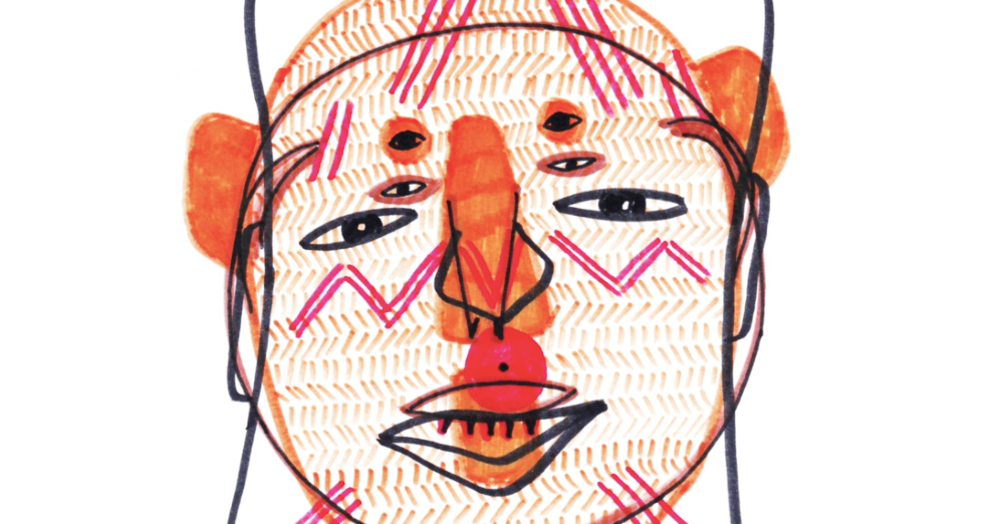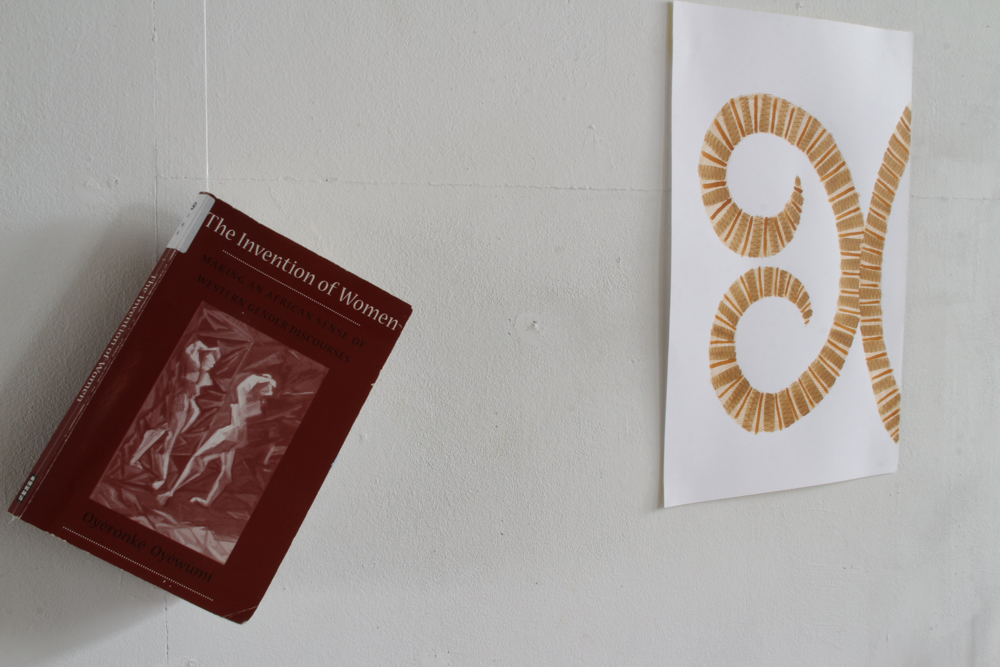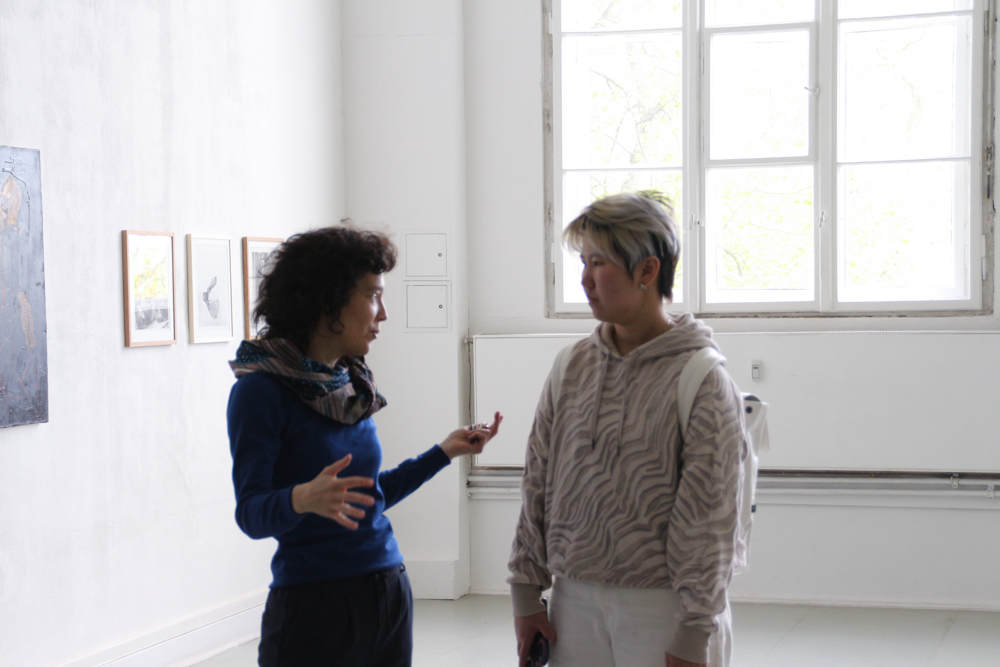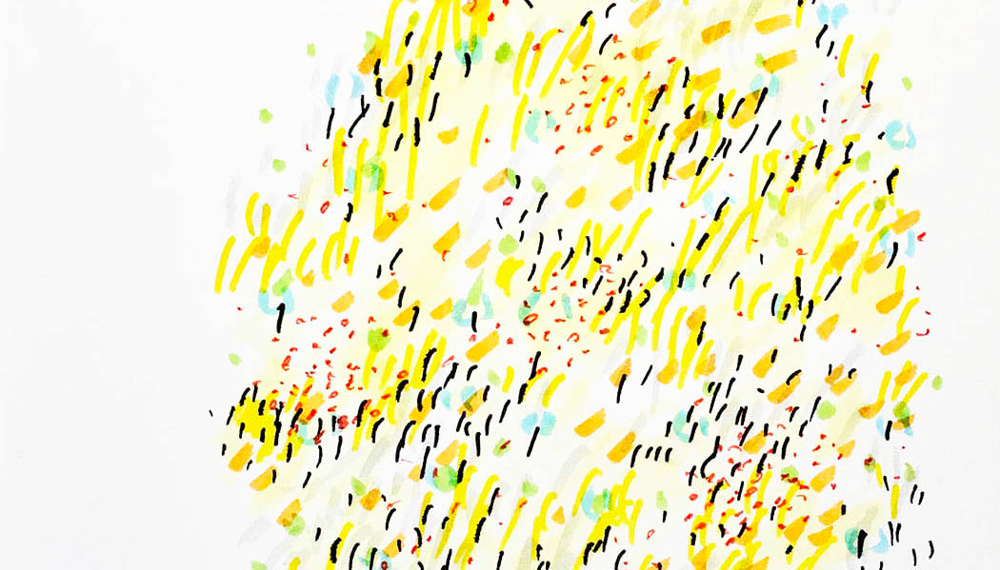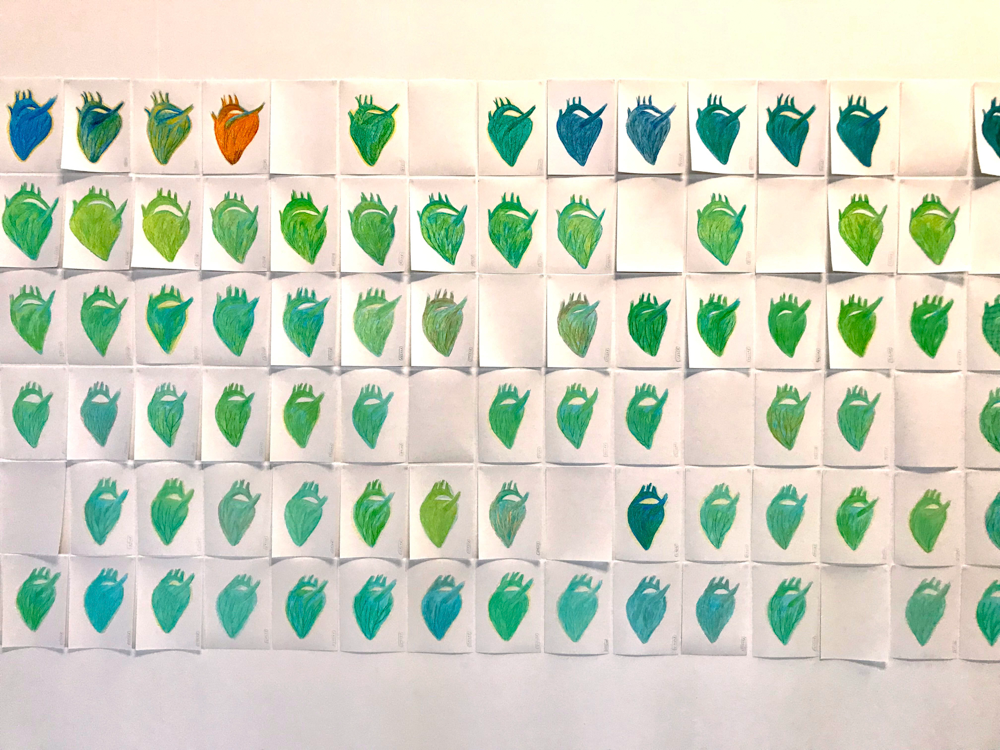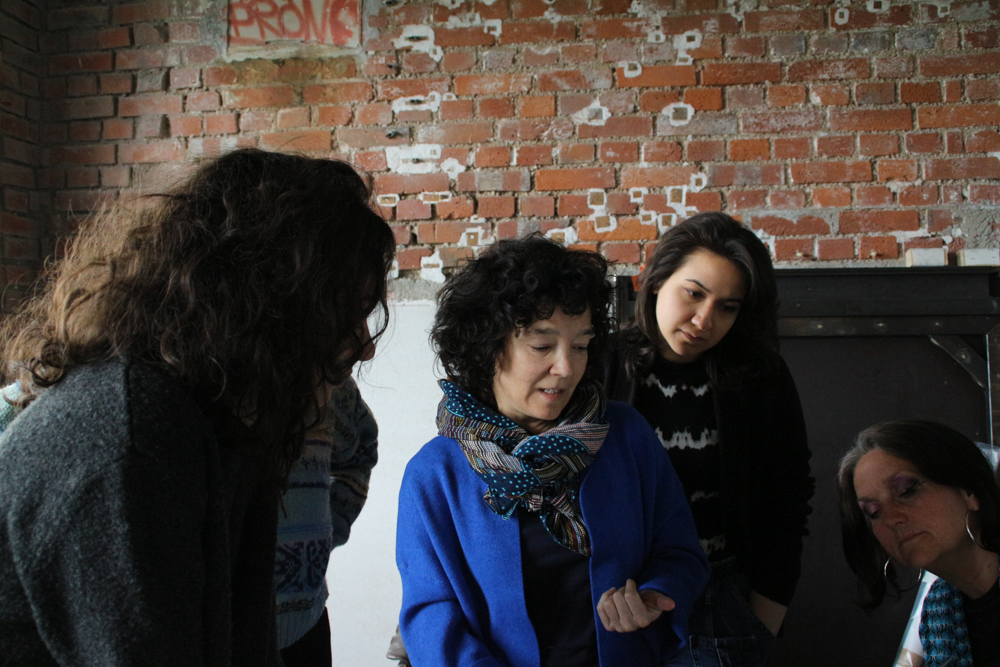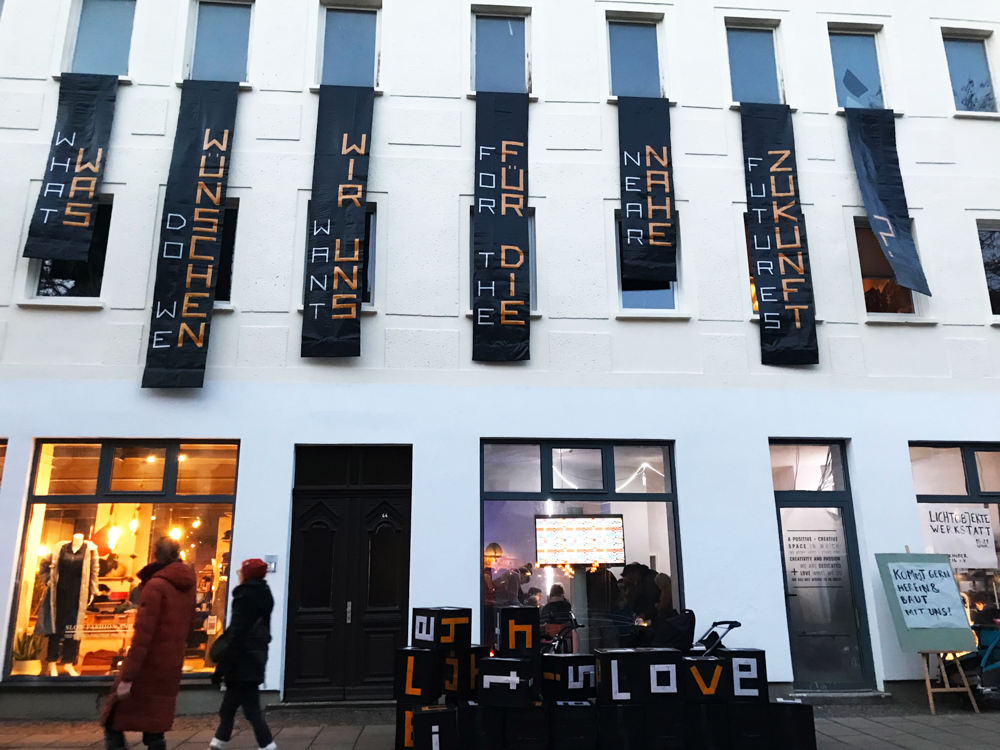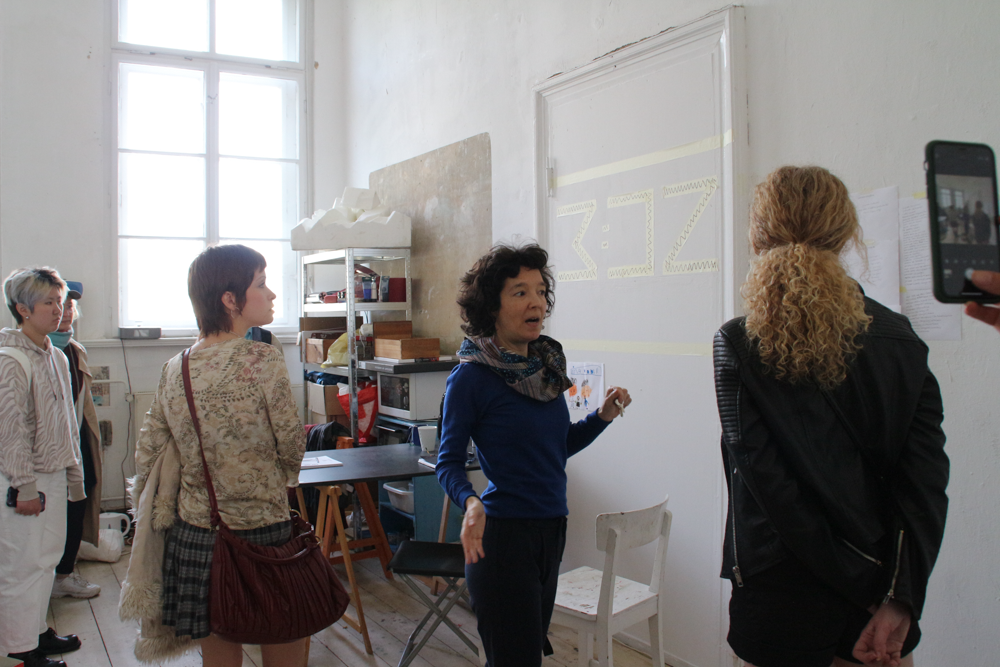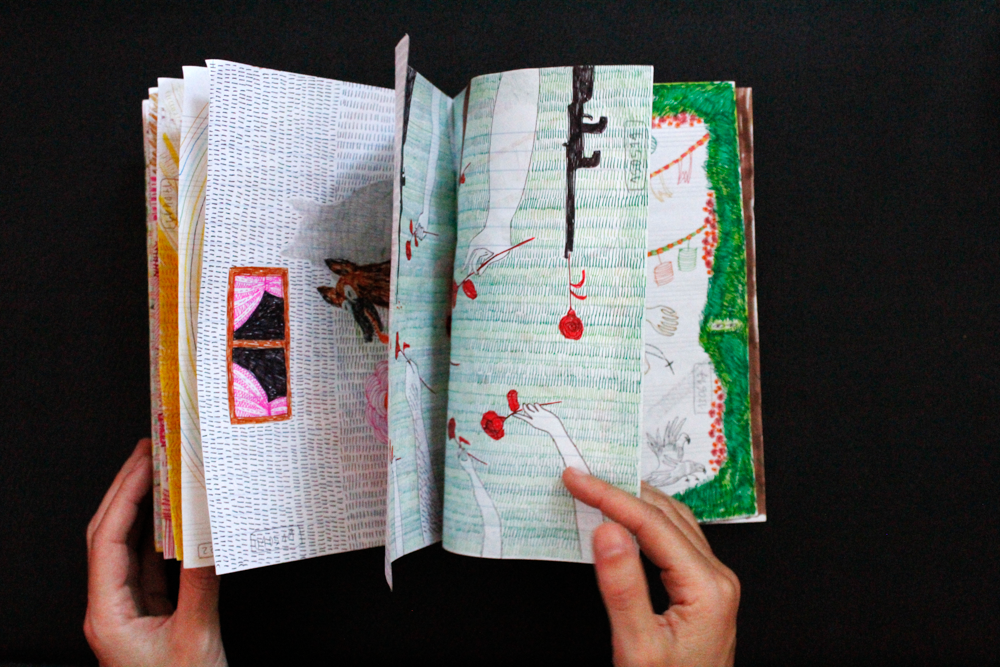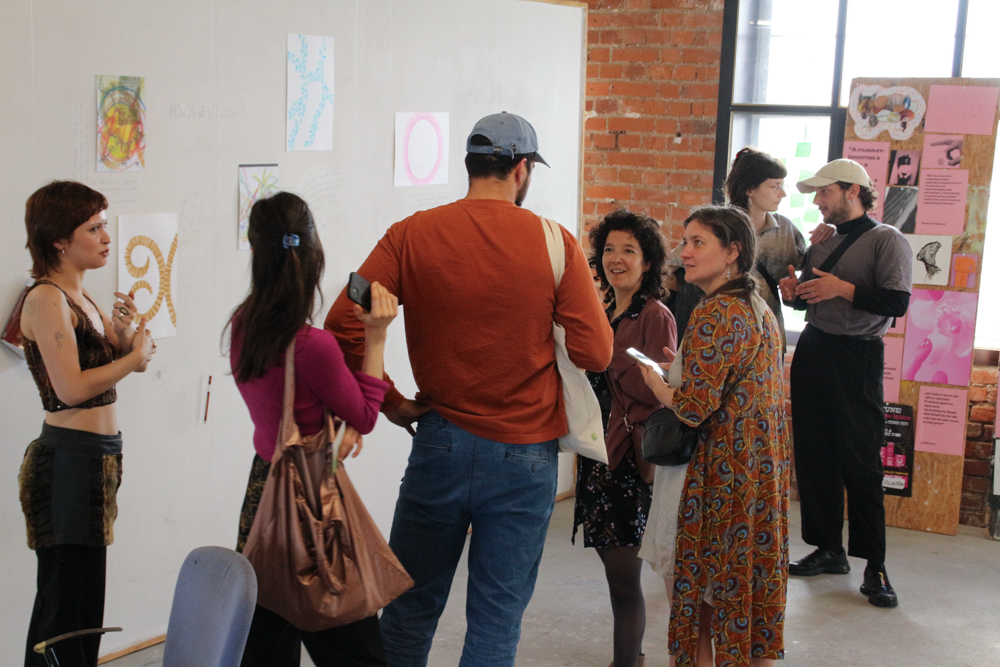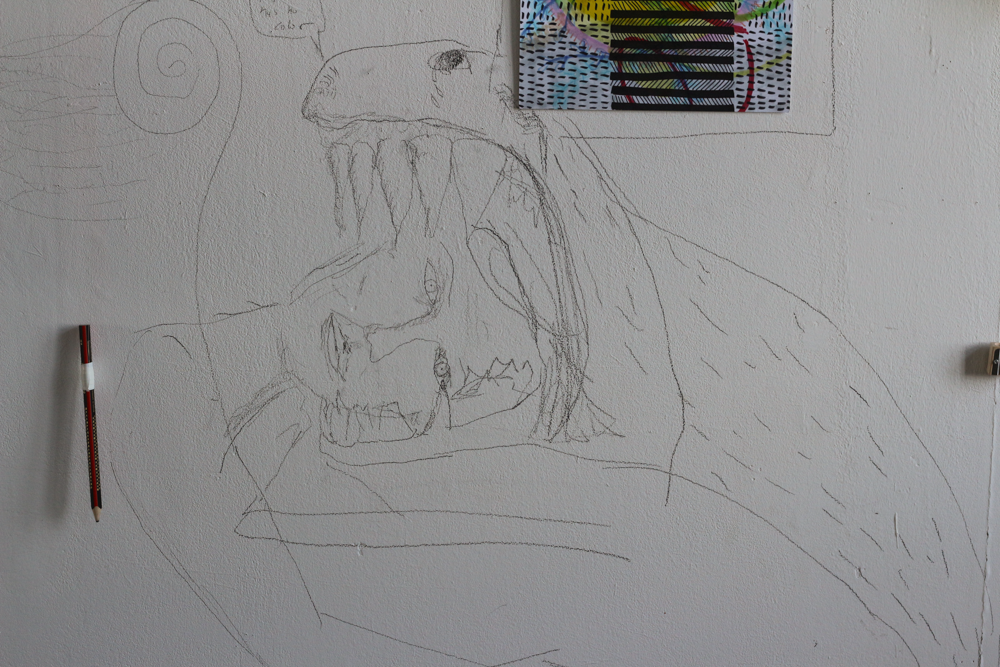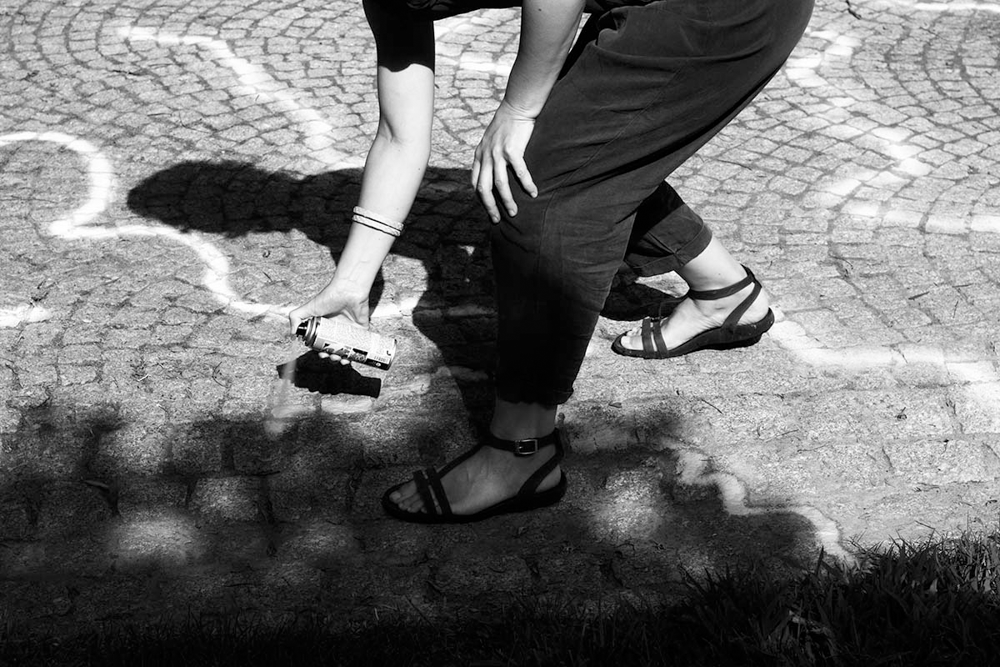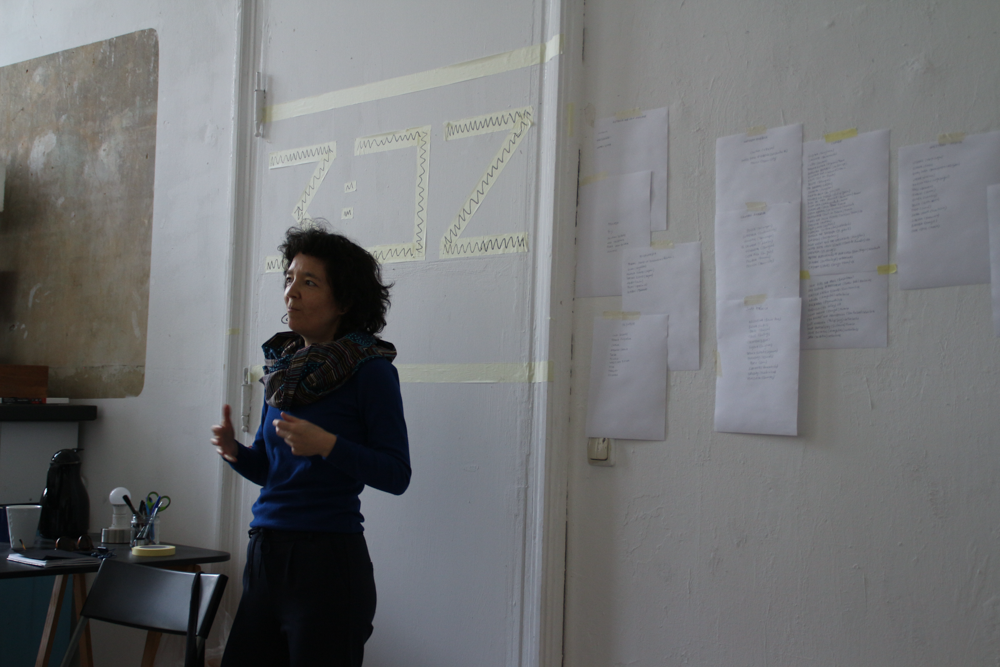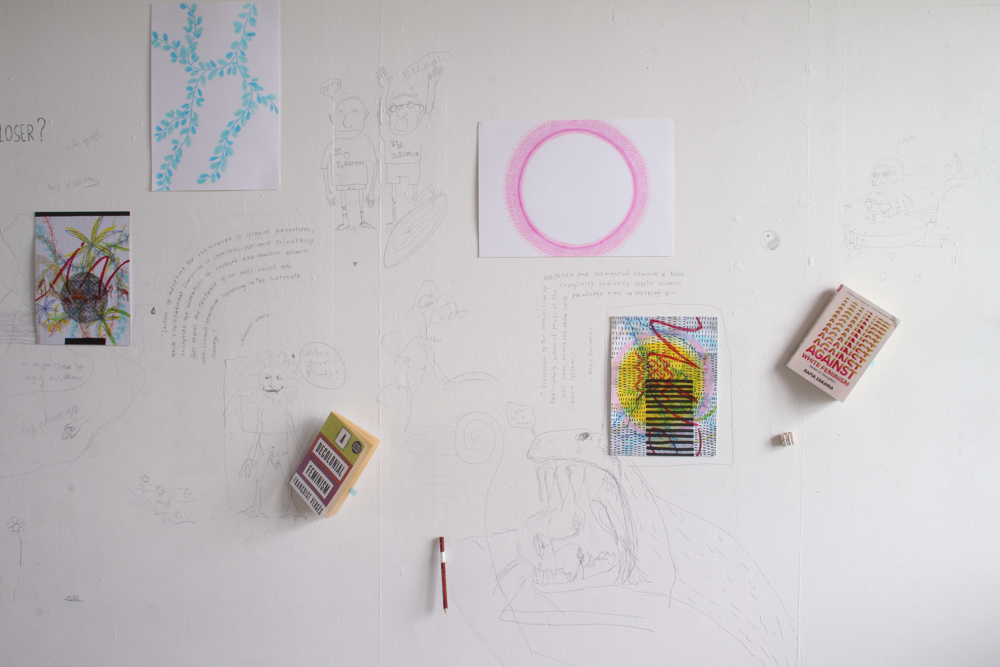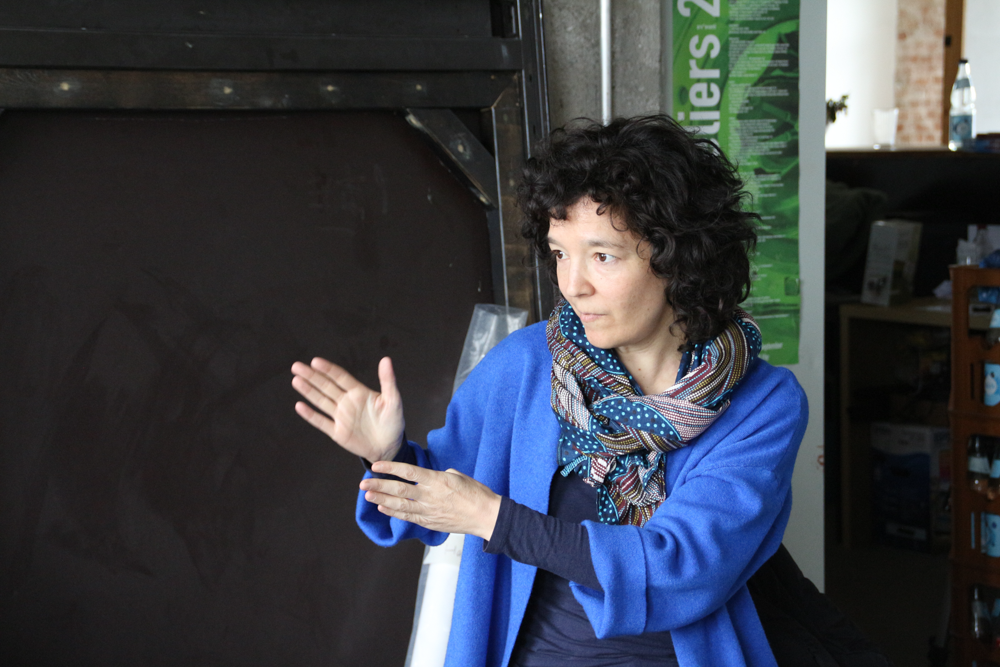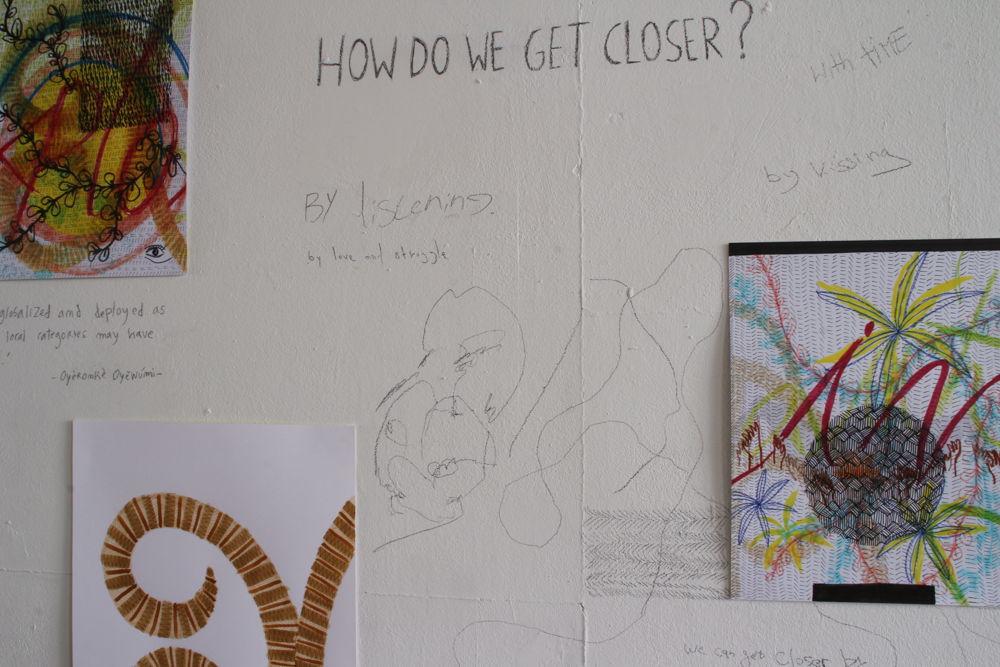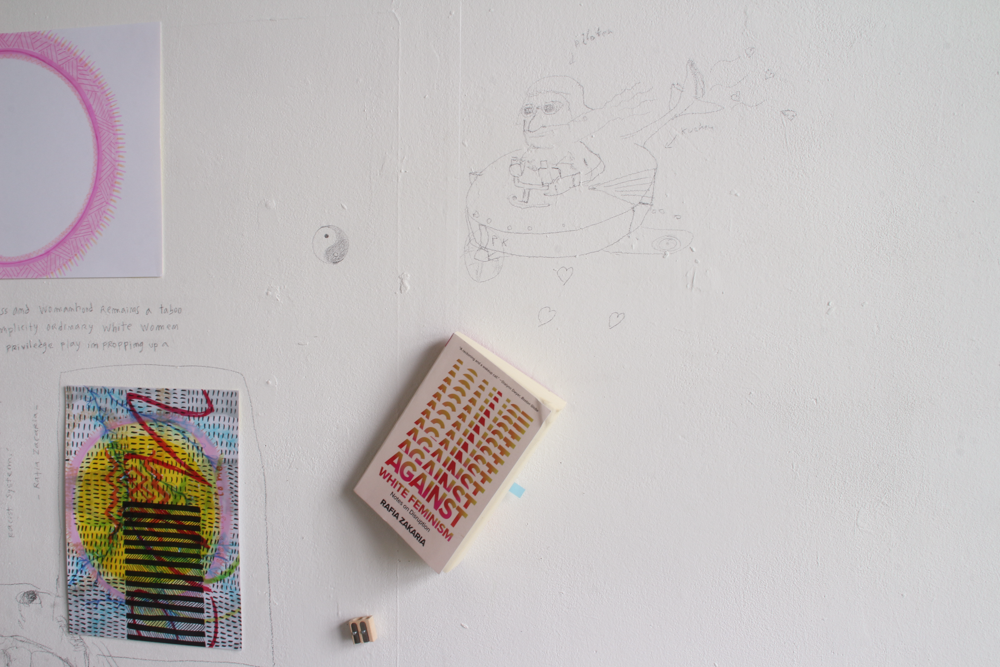For visual artist Filipa Pontes, drawing is more than a form of expression. It’s “a way to enlarge the world”. Grounding her works in between personal and collective experiences, the Portuguese artist believes in art’s potential to create new connections, whether it be with people, space, or time. Her exploration of lived experiences is always accompanied by research. It can take the form of delving into books to think with others or studying a particular space to discover its social and cultural characteristics. Not interested in the description of her findings, Filipa uses a critical approach to create her drawings, performances, and installations that are infused with her own evocations.
Transformative power of art
In our ordinary lives, we rarely realize the environment that surrounds us, or the beliefs and norms that we take as a compass. These surroundings reduce to a mere backdrop of the action we are engaged in. A common practice in Filipa’s work is to challenge this indifference by creating interventions in the public space. Thus carving a path to a different perception. In Map the Sun project, Filipa drew lines on the grounds of different public places, using a piece of chalk to reveal the sun’s passage. This subtle yet grand gesture transformed common spaces into sites of potential and possibility. Serving as a reminder of the connection between humans and non-human beings, the project created a playground for alternative dialogues, perhaps to “envision a different future” where we are in a closer relation to all the beings of our co-existence.
images by PILOTENKUECHE or supplied by artist
To create these potentials, Filipa says art does not have to be revolutionary but should be open and collaborative. This is a possible explanation of her choice to use simple materials in her art. This started out as a matter of convenience. She was able to use the same inexpensive materials in different places she travels to, Filipa persists in using materials such as markers, tapes, and pencils. In another public performance series reflecting on contemporary society’s concept of, Filipa’s materials included “time, body, and tape”.The fact that those educated in the idea of fine art might dismiss her works as art practice only fuels the artist’s determination to utilize them further as political statements.
Ritualistic repetition
Another common element in Filipa’s practice is the use of repetition. For her, repetition is not about perfection or avoiding failure but about maintaining a ritualistic process of “being alive”. She likens it to the daily rise of the sun, which, while seemingly the same, touches the world differently each day. This concept is evident in her work Arritmia Iridescente where she drew an human heart every day during the pandemic. This auto-ethnographical project also reflects a shift from seeking closure in her work to embracing endless, evolving meanings.
Filipa’s drawings in a “contact zone”
These defining elements of Filipa’s practice come together in her most recent project. After finishing her PhD in fine arts/drawing, Filipa found time to dig deeper into the topic of decoloniality. Coupled with a heightened urge to question her cultural heritage while away from home, she is currently investigating Portuguese colonial history through reading and interviewing people worldwide. Yet, her interest goes beyond decolonizing national histories. Filipa works at the intersection of different issues including feminisms and body politics. As a way of “not thinking alone”, she reflects on these topics with various authors. Filipa’s project Hiato(s)/hiatus, from the Portuguese word meaning “gap” or “separation,” features intuitive and reflective drawings.
With every new book she reads, she adds a new layer to her drawings, illustrating how these sources of knowledge change her perceptions. This relationality, rather than mere representation, is crucial to her work. It was indeed this question she asked in her work exhibited during the first show at PILOTENKUECHE, How do we get closer?. In the final exhibition of her the residency, Filipa is looking forward to exhibiting the drawings of Hiato(s)/hiatus, inviting viewers to ponder the thought-provoking question, “Who are your ancestors?”
written by Zeynep Ayta
windy HOME
part of Tour de Franz
Sat 25 & Sun 26 May
2PM – 7PM
PILOTENKUECHE
Franz-Flemming-Str 9
04179 Leipzig
mute BODY
Vernissage Fri 21 June 7-10 PM
Sat 22 – Wed 26 June 4-8 PM
Alte Handelsschule
Giesserstr 75
04229 Leipzig

